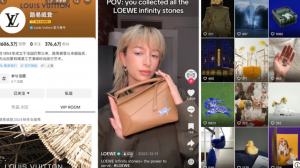Working with the right KOLs is how brands have traditionally tapped into China’s affluent, young consumer base. But are KOLs too risky today?

Working with the right influencers — in other words, key opinion leaders (KOLs) — is how most luxury and fashion businesses began tapping into China’s affluent, young consumers. Now, adapting that strategy to fit into Gen-Z China’s patriotic consumerism and cancel culture has quickly become the new game.
Last month, a site-wide campaign targeted global fashion brands over their stances on human rights in China’s autonomous region of Xinjiang, sparking digital consumer riots. Within a week, more than 44 celebrities and countless social media KOLs terminated all types of collaborations with the brands in question, including Adidas, Nike, Converse, and others.
This type of celebrity and influencer mass exodus is not new for China’s young and digitally empowered generation. After the Dolce & Gabbana “racist” rant scandal in 2018, an avalanche of outraged comments led to the cancelation of the brand’s Shanghai show and all its celebrity and model contracts. In 2019, a T-shirt that had questionably listed Hong Kong and Macau as independent countries propelled a cohort of A-list brand ambassadors to cut off ties with Versace, Givenchy, and Coach.
The recent dramatic influencer dropout in defense of using Xinjiang cotton is only part of a greater issue that would force brands to reconsider their China marketing strategies in an increasingly polarized world. Without a revisited plan, brands are likely to see even more complications and consumer boycotts soon.
Given the volatility of working with humans, predictable and perfectly disciplined “virtual KOLs” seem to like an easy alternative for brands. The Chinese CGI influencer Ling 翎 is a good case in point. “Born” in May 2020, Ling combines the look of traditional Chinese beauty and contemporary streetwear style, and young netizens are loving her ancient-meets-modern look. Thus far, she has worked with well-known brands such as Tesla, VOGUE, and Nayuki. Continue to read the full article here





